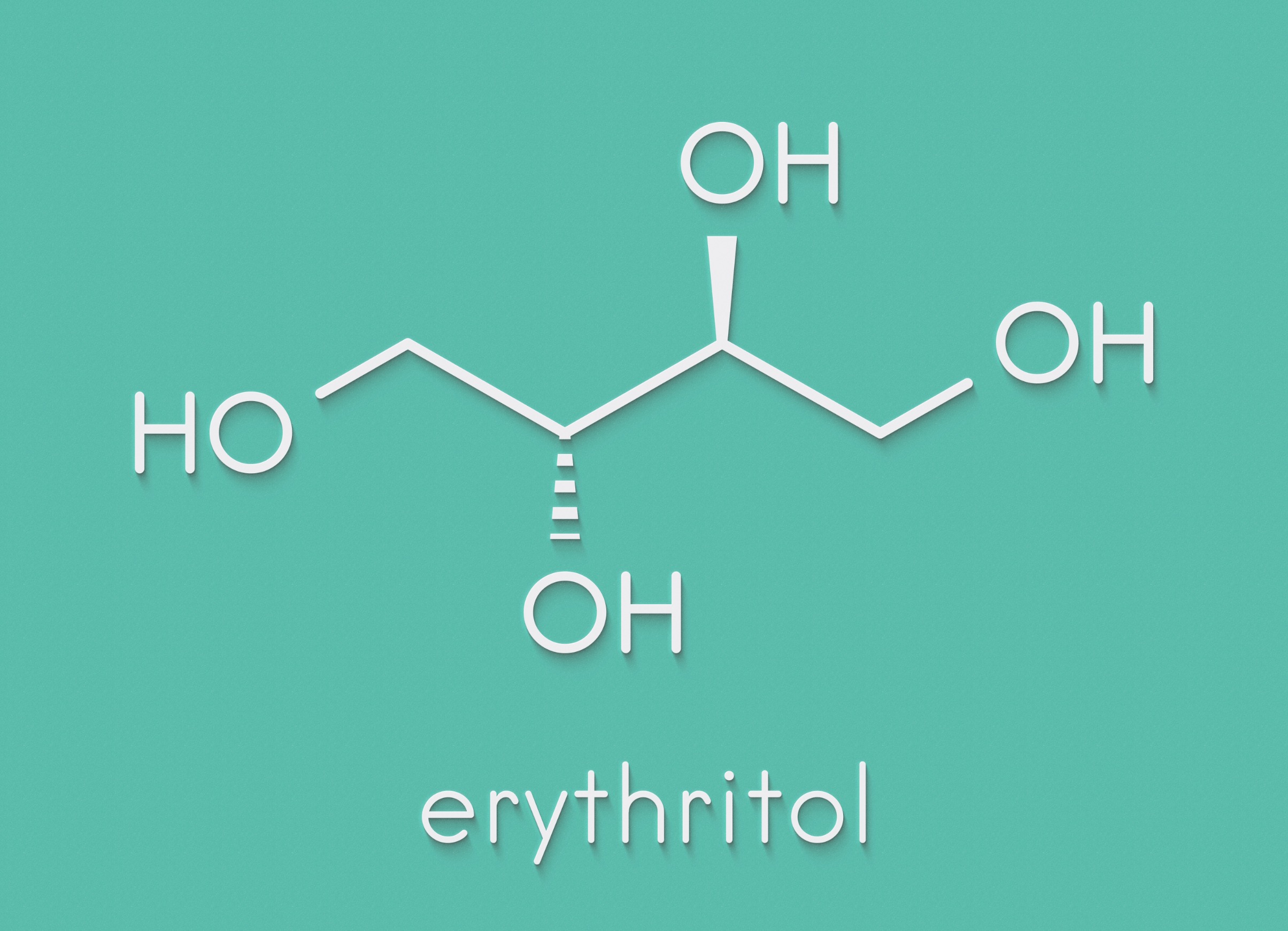Are sugar alcohols dangerous? Sugar alcohols include xylitol, erythritol, sorbitol, and maltitol. Until this recent study they were generally considered to be safe sugar substitutes.
Bu this new study suggests possible link between sugar substitute and heart issues
Recent findings have sounded alarms among researchers, but experts say artificial sweeteners need more investigation.
In a study published in the journal Nature Medicine on Monday, researchers reported links between the popular zero-calorie sugar substitute erythritol and an increased risk of cardiovascular events, including heart attack and stroke. The sweetener, which is often added to many low- or zero-calorie foods and drinks, is just one of many sugar substitutes researchers have called into question in terms of their long-term safety risks.
“People are trying to do something healthy for themselves but inadvertently may be doing harm,” said Dr. Stanley Hazen, a cardiologist at the Cleveland Clinic and an author of the study.
Study to Determine Are Sugar Alcohols Dangerous
• In the study, researchers looked at the levels of erythritol in the blood of around 4,000 people from the United States and Europe and found that those with the highest blood concentration of the sugar substitute were more likely to have a stroke or heart attack.
• The participants, who mostly were over the age of 60, either already had or were at high risk for cardiovascular diseases because of conditions like diabetes and hypertension.
• The researchers also found that when they fed mice erythritol, that promoted blood clot formation.
• Erythritol appeared to induce clotting in human blood and plasma as well.
• Among eight people who consumed erythritol at levels typical in a pint of keto ice cream or a can of an artificially sweetened beverage, the sugar alcohol lingered in their blood for longer than two days.
“Every way we looked at it, it kept showing the same signal,” Dr. Hazen said.
“This compound isn’t innocuous,” said Dr. Dariush Mozaffarian, a cardiologist and professor of nutrition at the Friedman School of Nutrition Science and Policy at Tufts University who was not involved with the study. And there haven’t been enough studies to determine the long-term health effects of sugar substitutes in humans, he said. “That’s the problem. Regardless of this study, there’s just not been enough evidence that they’re really safe.”
Limitations on Study of Are Sugar Alcohols Dangerous
There were, however, key limitations to the study, Dr. Mozaffarian said. First, the majority of participants either had cardiovascular disease or had multiple risk factors for cardiovascular issues, which potentially skewed the data.
And while the study found an association between erythritol and elevated cardiovascular risk, it did not prove that the compound itself caused strokes and heart attacks. The study includes observational research that requires further validation, said Dr. Priya M. Freaney, a cardiologist at Northwestern University who was not involved with the study. But, she added, “it’s concerning enough that it certainly deserves more investigation.”
Previous reviews have found that erythritol may be a good replacement for sugar, although much of that research has been performed in animals, said Joanne Slavin, a professor of food science and nutrition at the University of Minnesota-Twin Cities who was not involved with the new research.
“There are going to be studies that show that it’s good, bad or indifferent,” Dr. Nestle said. People have been consuming artificial sweeteners for years, she added, “it’s really hard to put your finger on any specific problem.”
And it’s especially challenging to examine the health effects of sugar substitutes and alternative sweeteners when they are consumed as part of a larger diet, Dr. Slavin said.
Dr. Slavin noted that the people who consume high amounts of artificial sweeteners may already be at risk for cardiovascular issues. If they have conditions like diabetes or obesity, they may be using artificial sweeteners to try to cut back on sugar, she said. “That’s the really important thing, for people to not say, ‘Hey, this stuff is terrible, it’s giving us heart attacks,’” Dr. Slavin said. “No. This is another data point that says, ‘Hey, we have to look into this.’”
For some people, sugar substitutes like erythritol can be an important tool for those who are trying to lower the amount of added sugars they’re consuming, Dr. Slavin said, which can help with weight management and blood glucose control. But there are alternative options to lower our overall sugar consumption, Dr. Hazen noted. While the research on the health risks of erythritol is still evolving, people may want to avoid large amounts of artificial sweeteners, Dr. Freaney said, especially if they already have heart disease or are at risk for heart attacks or strokes. That can start with small changes, she suggested — if you consume five artificially sweetened beverages a day, for example, try replacing two of those with water. But it doesn’t need to be all or nothing, she said.
Click here to get more answers to the question of are sugar alcohols dangerous.






